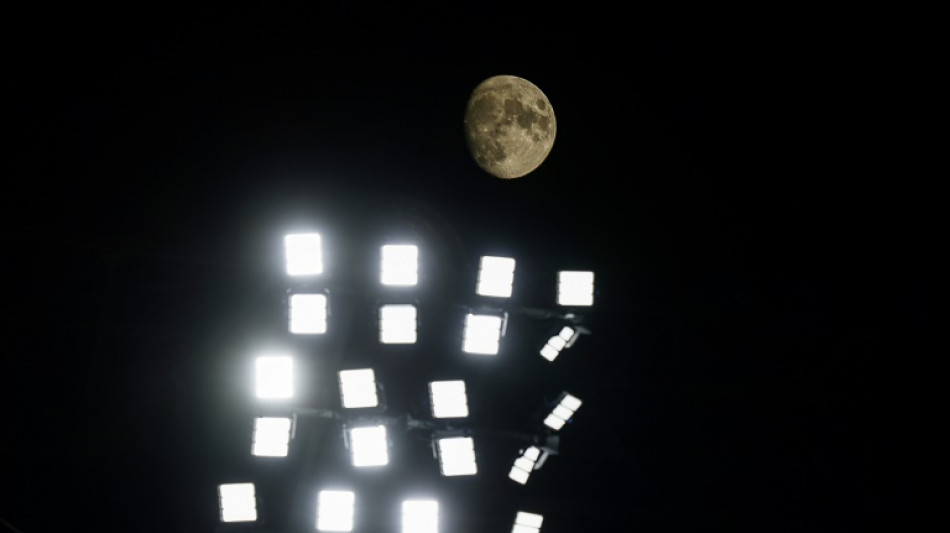
-
 US to take three-quarter stake in Armenia corridor
US to take three-quarter stake in Armenia corridor
-
Semenyo an instant hit as Man City close on League Cup final

-
 Trump warns of 'very strong action' if Iran hangs protesters
Trump warns of 'very strong action' if Iran hangs protesters
-
Marseille put nine past sixth-tier Bayeux in French Cup

-
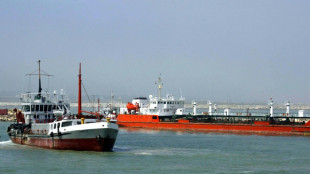 US stocks retreat from records as oil prices jump
US stocks retreat from records as oil prices jump
-
Dortmund outclass Bremen to tighten grip on second spot

-
 Shiffrin reasserts slalom domination ahead of Olympics with Flachau win
Shiffrin reasserts slalom domination ahead of Olympics with Flachau win
-
Fear vies with sorrow at funeral for Venezuelan political prisoner

-
 Pittsburgh Steelers coach Tomlin resigns after 19 years: club
Pittsburgh Steelers coach Tomlin resigns after 19 years: club
-
Russell eager to face Scotland team-mates when Bath play Edinburgh

-
 Undav scores again as Stuttgart sink Frankfurt to go third
Undav scores again as Stuttgart sink Frankfurt to go third
-
Fuming French farmers camp out in Paris despite government pledges

-
 Man Utd appoint Carrick as manager to end of the season
Man Utd appoint Carrick as manager to end of the season
-
Russia strikes power plant, kills four in Ukraine barrage

-
 France's Le Pen says had 'no sense' of any offence as appeal trial opens
France's Le Pen says had 'no sense' of any offence as appeal trial opens
-
JPMorgan Chase reports mixed results as Dimon defends Fed chief

-
 Vingegaard targets first Giro while thirsting for third Tour title
Vingegaard targets first Giro while thirsting for third Tour title
-
US pushes forward trade enclave over Armenia

-
 Alpine release reserve driver Doohan ahead of F1 season
Alpine release reserve driver Doohan ahead of F1 season
-
Toulouse's Ntamack out of crunch Champions Cup match against Sale

-
 US takes aim at Muslim Brotherhood in Arab world
US takes aim at Muslim Brotherhood in Arab world
-
Gloucester sign Springbok World Cup-winner Kleyn

-
 Trump tells Iranians 'help on its way' as crackdown toll soars
Trump tells Iranians 'help on its way' as crackdown toll soars
-
Iran threatens death penalty for 'rioters' as concern grows for protester

-
 US ends protection for Somalis amid escalating migrant crackdown
US ends protection for Somalis amid escalating migrant crackdown
-
Oil prices surge following Trump's Iran tariff threat

-
 Fashion student, bodybuilder, footballer: the victims of Iran's crackdown
Fashion student, bodybuilder, footballer: the victims of Iran's crackdown
-
Trump tells Iranians to 'keep protesting', says 'help on its way'

-
 Italian Olympians 'insulted' by torch relay snub
Italian Olympians 'insulted' by torch relay snub
-
Davos braces for Trump's 'America First' onslaught

-
 How AI 'deepfakes' became Elon Musk's latest scandal
How AI 'deepfakes' became Elon Musk's latest scandal
-
Albania's waste-choked rivers worsen deadly floods
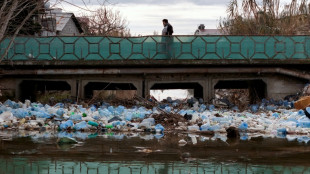
-
 Cancelo rejoins Barca on loan from Al-Hilal
Cancelo rejoins Barca on loan from Al-Hilal
-
India hunts rampaging elephant that killed 20 people

-
 Nuuk, Copenhagen mull Greenland independence in Trump's shadow
Nuuk, Copenhagen mull Greenland independence in Trump's shadow
-
WHO says sugary drinks, alcohol getting cheaper, should be taxed more

-
 Arteta urges Arsenal to learn from League Cup pain ahead of Chelsea semi
Arteta urges Arsenal to learn from League Cup pain ahead of Chelsea semi
-
Davos elite, devotees of multilateralism, brace for Trump

-
 Spanish star Julio Iglesias accused of sexual assault by two ex-employees
Spanish star Julio Iglesias accused of sexual assault by two ex-employees
-
Trump's Iran tariff threat pushes oil price higher
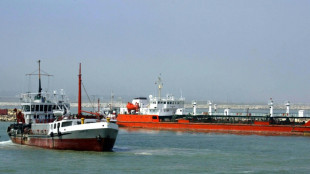
-
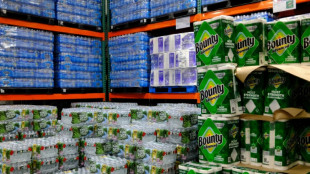 US consumer inflation holds steady as affordability worries linger
US consumer inflation holds steady as affordability worries linger
-
Iran to press capital crime charges for 'rioters': prosecutors

-
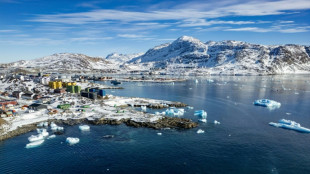 Denmark, Greenland set for high-stake talks at White House
Denmark, Greenland set for high-stake talks at White House
-
Iranian goes on trial in France ahead of possible prisoner swap

-
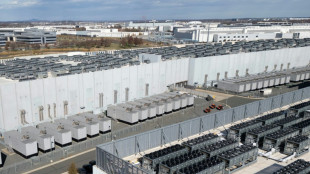 Cold winter and AI boom pushed US emissions increase in 2025
Cold winter and AI boom pushed US emissions increase in 2025
-
Hong Kong activist investor David Webb dies at 60

-
 Try to be Mourinho and I'll fail: new Real Madrid coach Arbeloa
Try to be Mourinho and I'll fail: new Real Madrid coach Arbeloa
-
Vingegaard targets Giro d'Italia and Tour de France double

-
 South Korean prosecutors demand death penalty for ex-leader Yoon
South Korean prosecutors demand death penalty for ex-leader Yoon
-
Iwobi hails Nigerian 'unity' with Super Eagles set for Morocco AFCON semi


Why go back to the Moon?
On September 12, 1962, then US president John F Kennedy informed the public of his plan to put a man on the Moon by the end of the decade.
It was the height of the Cold War and America needed a big victory to demonstrate its space superiority after the Soviet Union had launched the first satellite and put the first man in orbit.
"We choose to go to the Moon," Kennedy told 40,000 people at Rice University, "because that challenge is one that we are willing to accept, one we are unwilling to postpone, and one which we intend to win."
Sixty years on, the United States is about to launch the first mission of its return program to the Moon, Artemis. But why repeat what has already been done?
Criticism has risen in recent years, for example from Apollo 11 astronaut Michael Collins, and the Mars Society founder Robert Zubrin, who have long advocated for America to go directly to Mars.
But NASA argues re-conquering the Moon is a must before a trip to the Red Planet. Here's why.
- Long space missions -
NASA wants to develop a sustainable human presence on the Moon, with missions lasting several weeks –- compared to just a few days for Apollo.
The goal: to better understand how to prepare for a multi-year round trip to Mars.
In deep space, radiation is much more intense and poses a real threat to health.
Low Earth Orbit, where the International Space Station (ISS) operates, is partly shielded from radiation by the Earth's magnetic field, which isn't the case on the Moon.
From the first Artemis mission, many experiments are planned to study the impact of this radiation on living organisms, and to assess the effectiveness of an anti-radiation vest.
What's more, while the ISS can often be resupplied, trips to the Moon -- a thousand times further -- are much more complex.
To avoid having to take everything with them, and to save costs, NASA wants to learn how to use the resources present on the surface.
In particular, water in the form of ice, which has been confirmed to exist on the lunar south pole, could be transformed into rocket fuel by cracking it into its separate hydrogen and oxygen atoms.
- Testing new gear -
NASA also wants to pilot on the Moon the technologies that will continue to evolve on Mars. First, new spacesuits for spacewalks.
Their design was entrusted to the company Axiom Space for the first mission which will land on the Moon, in 2025 at the earliest.
Other needs: vehicles -- both pressurized and unpressurized -- so that the astronauts can move around, as well as habitats.
Finally, for sustainable access to an energy source, NASA is working on the development of portable nuclear fission systems.
Solving any problems that arise will be much easier on the Moon, only a few days away, than on Mars, which can only be reached in at least several months.
- Establishing a waypoint -
A major pillar of the Artemis program is the construction of a space station in orbit around the Moon, called Gateway, which will serve as a relay before the trip to Mars.
All the necessary equipment can be sent there in "multiple launches," before finally being joined by the crew to set off on the long voyage, Sean Fuller, responsible for the Gateway program, told AFP.
"Kind of like you're stopping at your gas station to make sure you get all the stuff, and then you're off on your way."
- Maintaining leadership over China -
Apart from Mars, another reason put forward by the Americans for settling on the Moon is to do so before the Chinese, who plan to send taikonauts by the year 2030.
China is the United States' main competition today as the once proud Russian space program has withered.
"We don't want China suddenly getting there and saying, "This is our exclusive territory,'" NASA boss Bill Nelson said in a recent interview.
- For the sake of science -
While the Apollo missions brought back to Earth nearly 400 kilograms of lunar rock, new samples will make it possible to further deepen our knowledge of this celestial object and its formation.
"The samples that we collected during the Apollo missions changed the way we view our solar system," astronaut Jessica Meir told AFP. "I think we can expect that from the Artemis program as well."
She expects further scientific and technological breakthroughs too, just like during the Apollo era.
S.Abdullah--SF-PST



